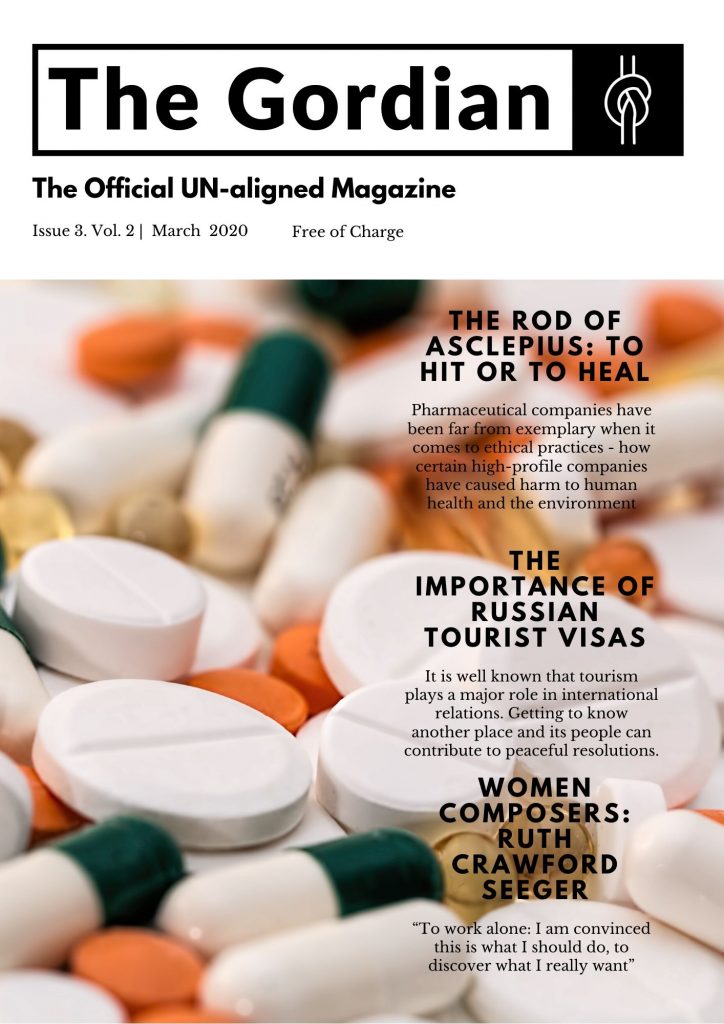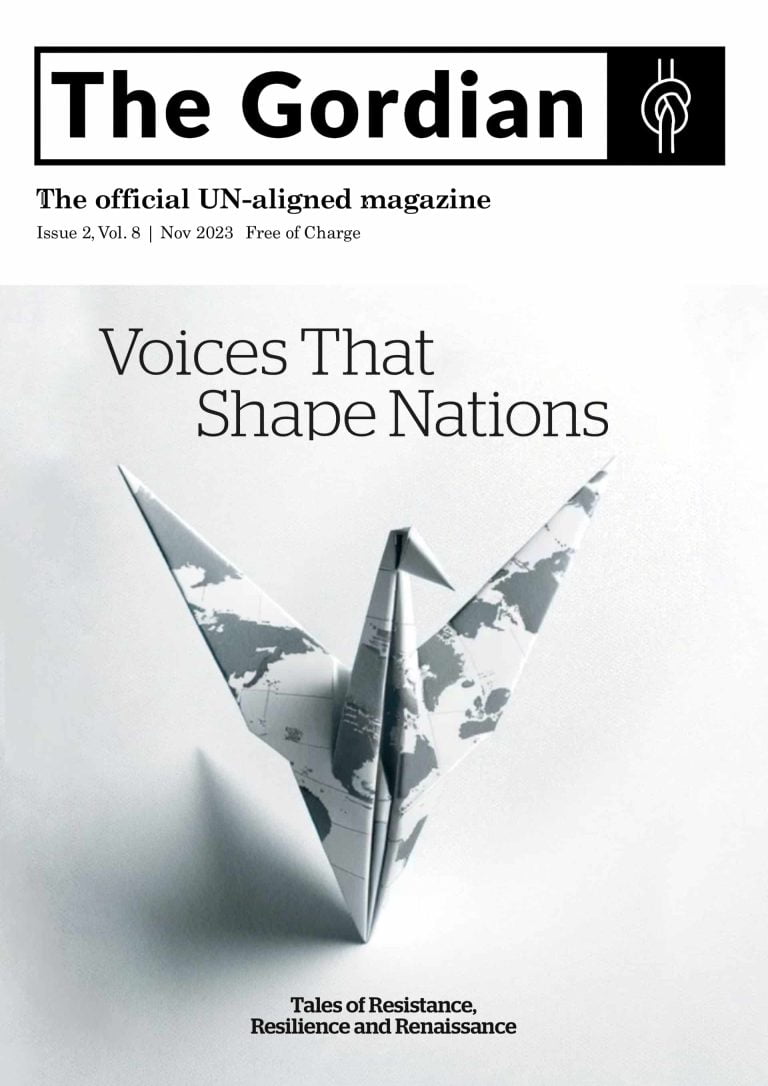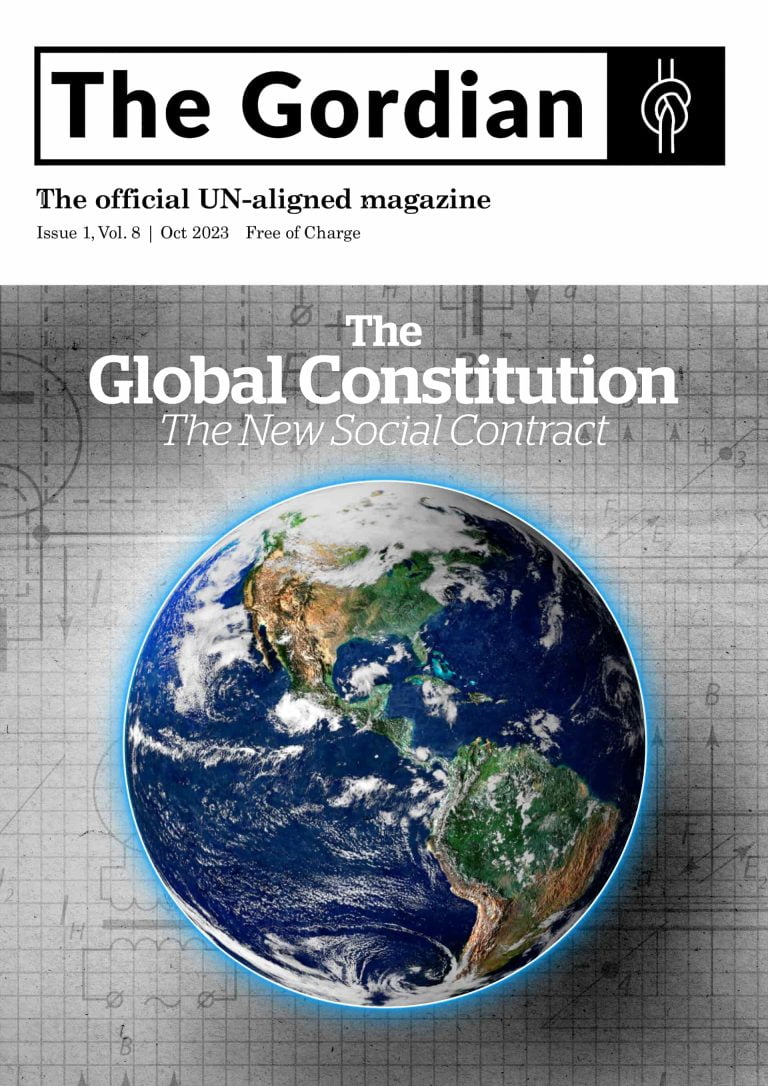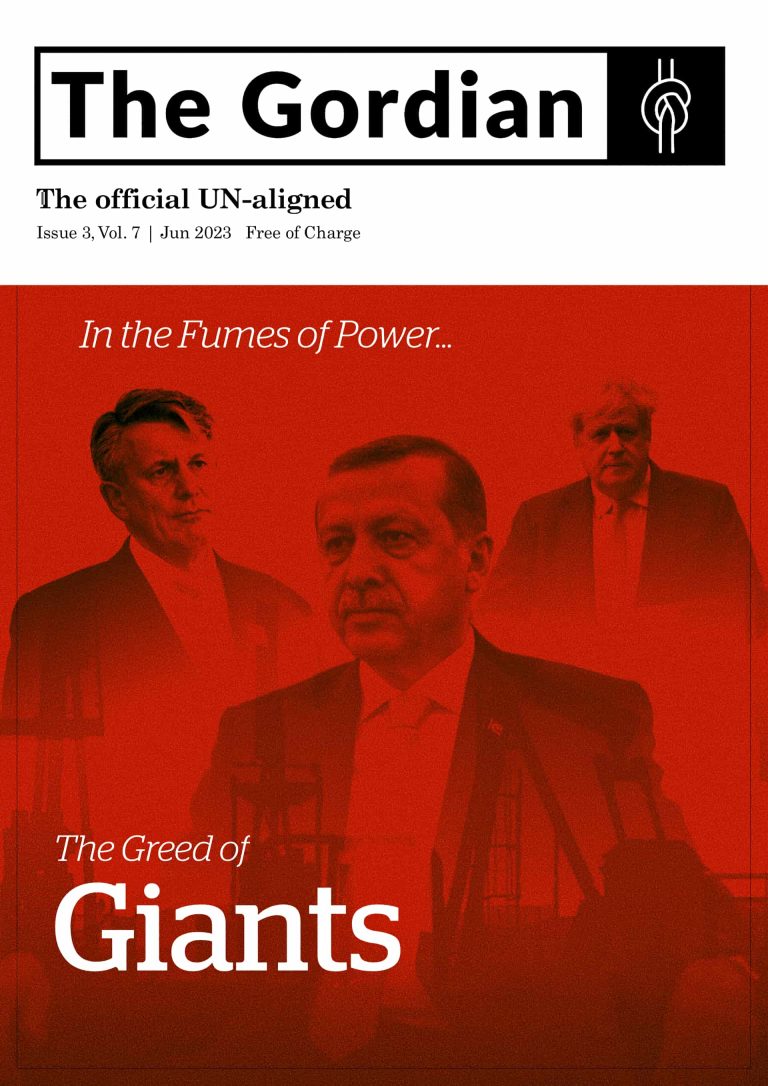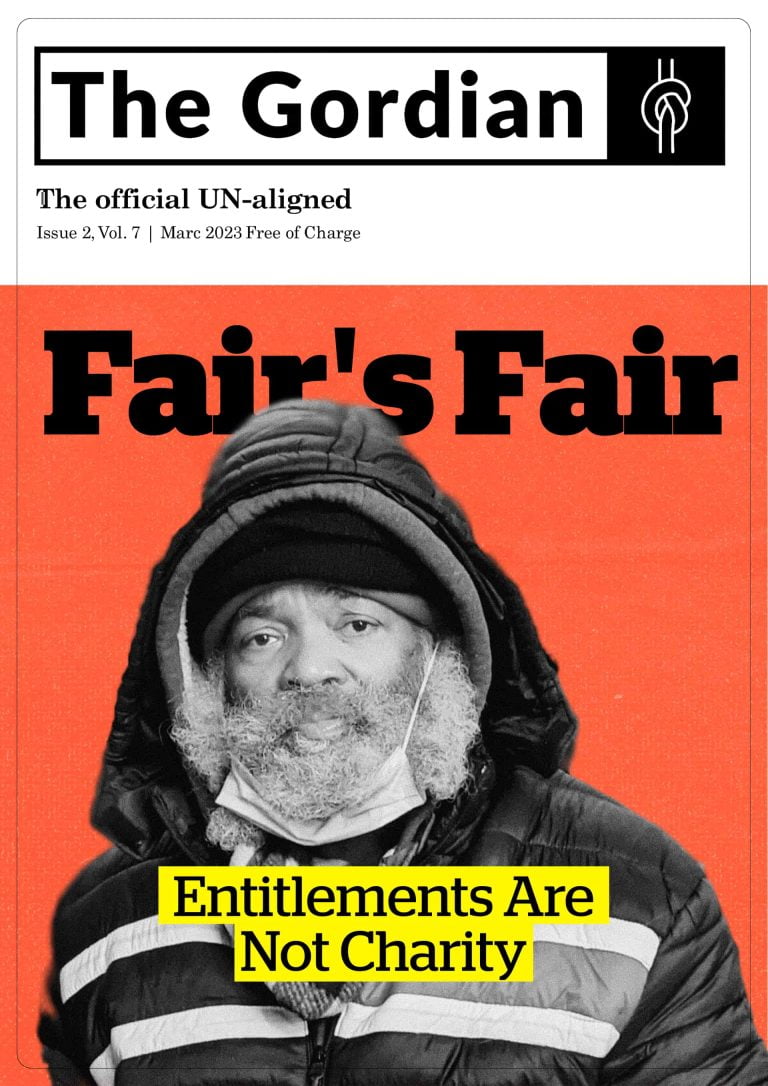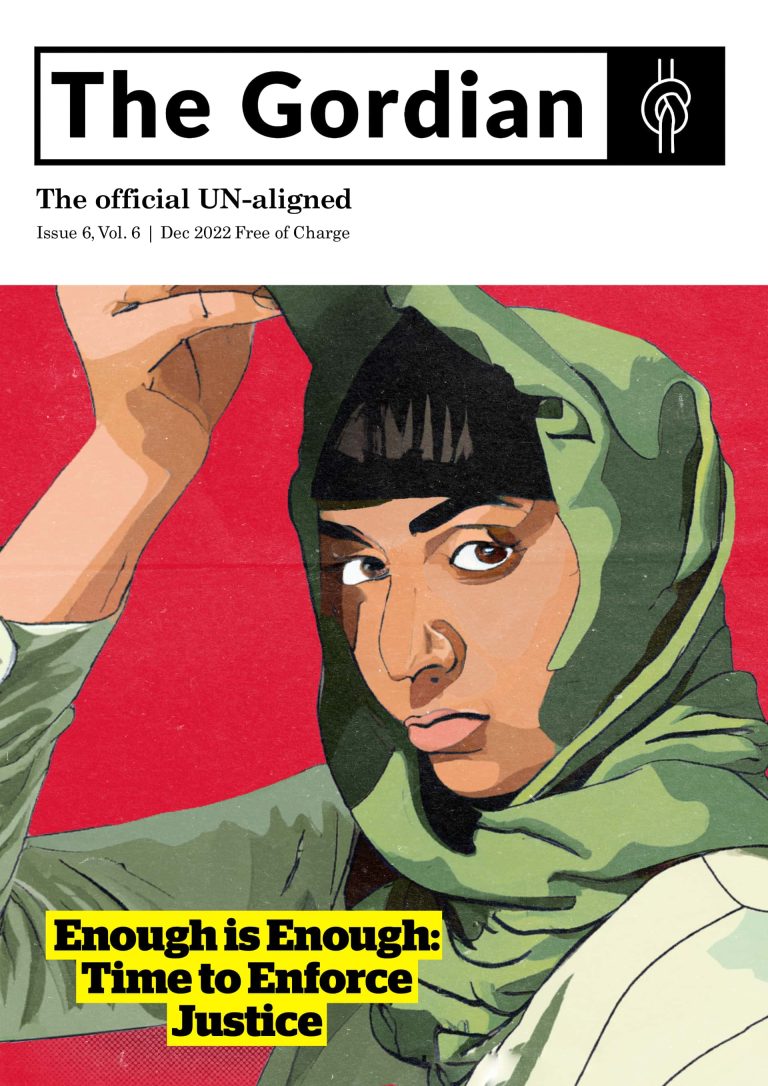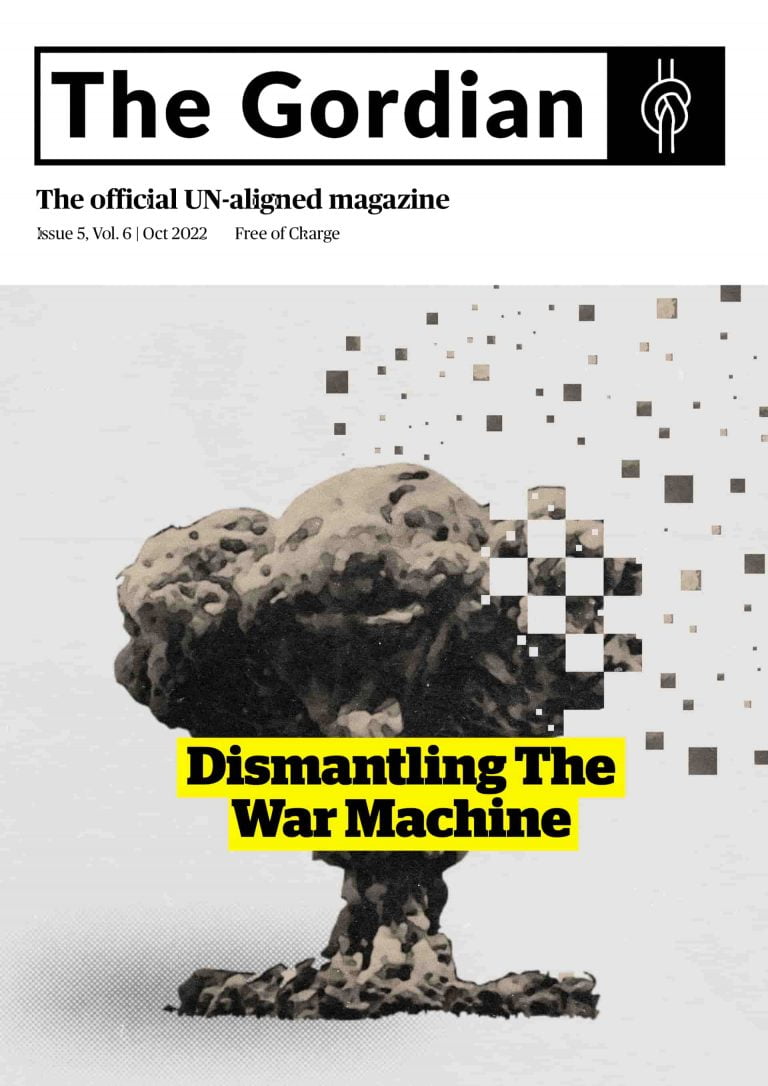News across the world you may have missed

MALAYSIA
Mahathir Mohamad, Malaysia’s interim Prime Minister said that seeing as an agreement could not be reached on his replacement, parliament would vote to pick a new Prime Minister; failing that, a snap election will be called.
CAMBODIA
Environmentalists are warning that millions of people who depend on the Mekong river for their sustenance are at risk. Dams being built by China are only part of the problem. Dredging the riverbed for sand to use in construction is causing the river to erode its banks and inhabited and cultivated areas with them.
EAST TIMOR
The Prime Minister of East Timor, Taur Matan Ruak announced his resignation on the 25th February after his proposed budget for 2020 was decisively rejected by the largest party in his coalition, led by Xanana Gusmao. Gusmao, was East Timor’s first president following the country’s independence in 2002 and he also served as prime minister after his term expired in 2007. He already announced that he is forming a six-party coalition that would not include Ruak’s party.
KAZAKHSTAN
Potential delegates for the emerging Democratic Party of Kazakhstan were arrested ahead of a rally that had been planned for February 22. The leader, journalist Zhanbolat Mamai, ended up cancelling the rally and organised a demonstration instead, which resulted in more arrests, including his own and that of his pregnant wife. The increased intimidation is coinciding with the preparations for next year’s parliamentary elections.

COLOMBIA
A Report released on February 26, by the Office of the UN High Commissioner for Human Rights, criticised Colombia for not doing enough to defend human rights. Figures showed that over 100 activists, as well as 66 indigenous people were killed there last year. The proportion of women killed also shot up, almost doubling in 2019 alone.
URUGUAY
March 1 ushers in the presidency of Luis Lacalle Pou who was elected last November. The last time his conservative Nationalist Party was in office was from 1990 to 1995 and was headed by his father Luis Alberto Lacalle. Rising crime and a stagnant economy contributed to the party’s victory.
BOLIVIA
A Washington Post investigation finds no irregularities in the October elections that resulted in a win for Evo Morales. The incumbent president was ousted by a military coup in November and new elections are set for May 3, 2020.
GUYANA
The government of Guyana published a request of ‘expression of interest’ on February 26, for a company to market its crude oil. This comes as mounting anger from environmentalists is directed at the World Bank for pledging $55m to Guyana’s fossil fuel industry. The World Bank, which is affiliated to the United Nations, is supposed to be committed to sustainable development.
UNITED STATES
NASA mathematician Katherine Johnson died on February 24, she was a 101. Her calculations of orbital mechanics were crucial to the development of space travel.

CAMEROON
At least 21 civilians, including women and children were killed in the English-speaking region during heightened tensions in February, which also saw the return of opposition leader Maurice Kamoto to the country. Human Rights Watch accuses the government of Pual Biya of being complicit in the slaughter.
LESOTHO
Prime Minister Thomas Thabane appeared in court on Monday 24th February charged with having murdered his wife in 2017. She was shot dead as she sat in a car two days before Thabane’s inauguration. She had recently refused a divorce and had won a court battle to retain her privileges as first lady. Thabane remarried his current wife soon after and she too is implicated in the crime. He is now requesting political immunity.
DEMOCRATIC REPUBLIC OF CONGO
The plague of locusts that has been ravaging East Africa has spread to the Congo. It is the most devastating swarm in decades and is destroying crops and livelihoods all along the region. A similar outbreak has started in Pakistan. Here, however, the Chinese may send in the cavalry to the rescue in the form of tens of thousands of ducks! One duck can eat up to 200 locusts a day and they are reputedly even more effective than pesticides.
TUNISIA
On Thursday 27th February, Tunisia’s new government was finally sworn in, after months of wrangling on how it should be formed. A parliamentary vote (129-77, with one abstention) approved the government of Elyes Fakhfakh that will include Ennahdha, the Islamist party that won the most votes, as well as several coalition partners.

AUSTRALIA
As Australian lawmakers are considering the Migration Amendment (Strengthening the Character Test) Bill, which will make it even easier to deport people, activists are appealing to the UN to scrutinise the Bill in order to expose the human rights violations they claim are involved.

CROATIA
Carnival Sunday celebrations in Imotski, a small Croatian town, caused outrage in the country and around the world. Many people there stood around applauding as effigies of a same-sex couple and their child were burned on a pyre. A few weeks earlier Croatia’s Constitutional Court had ruled that same-sex couples had the right to foster children. President Zoran Milanovic referred to the incident as a “sad, inhumane and unacceptable act.”
HUNGARY
Opposing petitions are taking place regarding Hungary’s new nationalistic curriculum. Currently those against it are ahead, but criticism of what is seen as Soviet-style brainwashing is growing, particularly in schools and teaching institutions. The changes are in line with Prime Minister Viktor Orban’s extreme rightwing ideology and “culture war” on liberalism.
An end to the “Fairytales of Eternal Economic Growth”

On Thursday 27th February, a British appeals court ruled that a planned expansion of Heathrow airport is unconstitutional because the planning process was not in accordance with the government’s own climate policies set out in the Paris Agreement. Lords Justice Lindblom, Singh and Haddon-Cave ruled that when setting out their support for the measures in their National Policy Statement (NPS), the government did not take adequate account of its contribution to the Paris Agreement on climate change.
Sadiq Khan: “The decision was a win for Londoners and generations to come”
“A new runway at Heathrow would have serious consequences on climate change, on air quality, on noise pollution, on road and rail networks and on the quality of life in our city. The government must now finally see sense and abandon plans for a third runway at Heathrow”.
The legal case was brought forward by a coalition of councils, including London Mayor, Sadiq Khan, Greenpeace, Friends of the Earth and Plan B.
Supporters of the third runway argue that it would provide an economic boost and that it is necessary for international business, in particular the post-Brexit era. The economic benefits are illusory at best; a bulk of flights are taken for leisure and according to surveys, only 1% of English residents take one-fifth of overseas flights.
Are the French ruling us all?
John Holland-Kaye, the Chief executive of Heathrow, thinks failing to expand Heathrow would “give control to the French”. This, however, could not be further from the truth. The Paris Agreement on Climate Change was signed to ensure our survival on this planet. While climate-change-denying leaders may not see themselves governed by the very same principals they themselves aspired to, their electorate does. It is indeed unusual for almost all nations to have a consensus on a single topic, but the Paris Agreement was an exception. Collectively, leaders around the world agreed that climate change is caused by human behaviour, that it is a threat to the environment and to society as a whole, and that concerted action is needed to avoid it.
Can the runway still be built?
If the government can show that Heathrow’s extension is consistent with its obligations under the Paris Agreement to curb greenhouse gas emissions drastically, the runway building process may go ahead. But a spokesperson for the prime minister has said that the government will not appeal its ruling.
At a separate event on Thursday, the business secretary and president of November’s UN COP26 climate summit, said: “Our choices will make or break the zero-carbon economy.”
Alok Sharma: “The only economy which can avoid the worst effects of climate change is a decarbonised economy.”
While leaders like Trump decided to gleefully pass the mounting problem of climate change on to our children, our commitment to the Paris Agreement will persist. Make no mistake, temperatures will keep rising. We’re seeing that already and we should expect more of it to come, it is only sensible to take action to reduce and mitigate these impacts. It is up to each of us to put this forward by making positive changes in our lives, helping businesses that really respect nature, and voting for politicians who want to tackle the climate emergency.
The Rod of Asclepius: to hit or to heal

“Who you gonna call?”
When new or latent diseases begin to spread, we generally rely on governments to take the necessary precautions to limit the contagion, while counting on pharmaceutical companies to find cures or vaccinations. With the spread of COVID-19, the situation is no different. We may be concerned, but generally have enough faith in science to trust that it will come up with a solution. If not, with the right measures in place, we expect that the outbreak will be contained and fizzle out as SARS did, which was rampant between November 2002 and July 2003, and disappeared decisively in 2004.
Science is our ally, even though it is easy to think otherwise as we witness the destruction of our planet in the name of progress. The problem is not with science, but with the way greedy people manipulate it to the detriment of the greater good. This applies to all progress, but in this issue, we will be focussing on this particular one relating to Big Pharma.
The outstanding benefits of modern medicine are undeniable and growing. As Yuval Noah Harari points out in his book, Homo Deus, some luminaries are going as far as predicting life expectancies that can even surpass Methuselahian life spans:
“The breakneck development of fields such as genetic engineering, regenerative medicine and nanotechnology fosters ever more optimistic prophecies. Some experts believe that humans will overcome death by 2200, others say 2100. Kurzweil and de Grey are even more sanguine. They maintain that anyone possessing a healthy body and a healthy bank account in 2050 will have a serious shot at immortality by cheating death a decade at a time.”
All well and good, but…
So far, pharmaceutical companies have been far from exemplary when it comes to ethical practices. David Mitchell, president and founder of Patients for Affordable Drugs, sums the problem up bluntly:
“I sort of view Big Pharma, as an industry, as an octopus with many tentacles, and at the end of every tentacle is a wad of cash…”
This issue of The Gordian includes some examples of the damage certain high-profile companies have caused to human health and the environment. The list of concerns, however, is a long one. Here are a few of them:
1. Polluting the environment with pharmaceutical waste from manufacturing facilities. In a recent survey by a drug industry watchdog, for example, none of the 18 prominent drug companies polled, including GSK, Novartis and Roche, would reveal how much antibiotic discharge they dump into the environment.
2. Abusing animals for research. Laws vary from country to country, so loopholes regarding safeguards abound. In the USA, for instance, rats, mice, fish, amphibians and birds are unprotected since they are not classified as animals with regards to regulations governing experiments.
3. Taking advantage of poor and uninformed people to conduct medical trials. In Hyderabad, India, for instance, eight people died in 2003 as a result of the anti-clotting drug Streptokinase having been tested on them. The victims had not even been informed that they were subjects in the trial.
4. Misleading users about side-effects, including addiction (see Purdue case study below).
5. Overpricing, even with regards to lifesaving medicines, such as insulin. This often leads to the proliferation of substandard drugs. The WHO has estimated that one in ten medical products in low- and middle-income countries is substandard or falsified.
6. Bribing doctors, politicians, editors of specialist journals and others, in order to underhandedly promote their goods (a 2017 study by the British Medical Journal, for instance, found that over 50% of editors were receiving hefty payments from pharmaceutical companies).
7. Neglecting diseases that affect middle- to lower-income countries in order to focus on profits.
8. Manipulating the patent system in order to hold on to their monopolies and thus being able to charge more by circumventing competition. AstraZeneca, for instance, slightly modified and rebranded its drug Losec, used for ulcers and heartburn, in order to acquire a new patent, even though the product was more or less unchanged.
9. The pharmaceutical industry supplies millions of doses of drugs, such as antibiotics, to pump up the meat industry. The effects, however, are not confined to the livestock. The drug can also affect those who consume the meat, as well as the environment, since a large percentage of the active ingredients are not metabolized. This means that the waste ends up contaminating the earth and waters, with dire consequences for wildlife.
The solutions to these problems will not stem from the pharmaceutical industry; certainly not while profits come first. Current legislation is, in most cases, too weak. Fines, for instance, are not good enough deterrents, as the profits involved often outweigh the penalties. The answer lies in robust laws, both national and international, that will make it financially painful for companies to carry on operating in ways that are detrimental to our health and the environment. Drug companies, however, are not charitable institutions and some of the issues, such as research on less profitable cures, will have to be dealt with directly by governments through subsidies and other incentives. The best way to bring about this change, therefore, is to vote for politicians who are brave enough to stand up to the multinationals when their practices are unethical, while working for a fairer society and a safer planet.
Bayer and Monsanto

An unholy Alliance
Almost two years ago, in March 2018, the European Union approved the $66 Million takeover by the German company Bayer of Monsanto. The US gave its go-ahead two months later and the deal was sealed on the 7th June. Monsanto had started off as a small saccharine business in Missouri in 1901 and developed into one of the biggest agrochemical companies in the world. Its trajectory was so steeped in unethical practices, that one of Bayer’s priorities was to drop the toxic name. Erasing the name alone, however, will not absolve the damage that has been done, nor will it guarantee a change in a better direction.
Roundup killing more than weeds
Roundup weed killer, one of Monsanto’s signature brands, was one of the first issues Bayer had to deal with, because of its alleged links to cancer. Despite Bayer insisting that the product is safe, juries in the US are taking the opposite view and ruling in favour of plaintiffs with cancer, who claimed that the product was responsible for the onset of their malady.
Bayer still maintains that glyphosate, the main ingredient, is safe to use. Indeed, since Monsanto’s patent expired, it is used in many weed killer products around the world. It is not just the farmers that are at risk. Many of the genetically modified (GM) seeds Monsanto produced were made to make them Roundup-resistant. So, much of the food and cotton produced in this way grew up shielded by glyphosate and is therefore contaminated.
Agent Orange and other sins
Monsanto was also one of the main producers of Agent Orange, a herbicide and defoliant that was used widely by the US during the Viet Nam conflict. The results were devastating, not only to the forests, but to millions of human and animal lives, many of which are still suffering the consequences.
Of course, the US does not consider Agent Orange a banned chemical weapon. Judge J.B. Weinstein, who presided over a compensation claim in 2005, pointed out that the British had already set a president. The British had, in fact, used similar tactics to deal with insurgency in the Malay jungles. This is a rather odd way of judging ethical conduct, particularly when one goes into the gory details of British history.
Ironically, Bayer, which was founded in Germany in 1863, was also guilty of supplying its government with chemical weapons. It supported the Nazis during WWII and supplied the regime with the gas used to exterminate Jews in the death chambers.
Goodbye to good old crop farming
Some of those issues are history and we can hope that others will be so too. After all, it does not feel like that long ago when we were using asbestos toasters! However, what is likely to linger, is the impact this agrochemical industry is having on traditional crop farming. Monsanto was linked to many suicides in India, when, for instance, farmers would pay over the top for miracle seeds that would sometimes fail.
The main problem with farmers buying these seeds is that they are designed in such a way as not to reproduce. Hence, the traditional way of saving some seeds for the next crop is no longer possible. Farmers have to keep going back to the suppliers who call the shots. Apart from the expense to farmers, irrespective of the previous yield, one wonders what other consequences these sterile seeds can produce. If healthy ones start to go out of business and circulation, the consequences could be apocalyptic.
Damage limitation is our responsibility
These are just some of the issues relating to Bayer/Monsanto. There are others, such as pollution and endangering the earth’s insect populations. When Bayer first suggested taking over Monsanto, Friends of the Earth was terribly alarmed. In November 2016 it announced:
Bayer the Bee-Slayer and Monsanto the Butterfly-Killer are trying to merge into one HUGE corporation. We must stop them! If these two companies merge, it would create the biggest seed and pesticide company in the world — giving it unprecedented control over our food supply. Take Action: Tell the DOJ to stop Bayer and Monsanto from merging now!
Of course, it is too late for that now. Nevertheless, it is our responsibility to make sure that the damage such companies can cause is as limited as possible.
Purdue Pharma

Money Speaks… But we are not always bound to listen
Universities, museums and even politicians often bow to philanthropic cheques, ignoring the bloody stains they sometimes come with. Thankfully, not all of them. Last year, for instance, the National Portrait Gallery in London turned down a £1,000,000 grant from the Sackler family. Sacklers is synonymous with philanthropy. They have donated millions of dollars to noble causes. The problem is that they are also identified with one of the worst pharmaceutical scandals in US history. The Sacklers own Purdue Pharma, which produces OxyContin. This painkiller is a key player in the opioid crisis in the US. It resulted in many deaths and addictions owing to its deliberate mislabelling and aggressive marketing, which included bribing doctors with complementary trips to international conferences.
The National Portrait Gallery is a gem of a museum. It is somewhere where the visitor can enjoy art while learning about history at the same time. Now, it can add another feather in its cap. It is the first major art institution to turn down a grant from the Sackler family. Only bold actions can take away that aura of respectability from names such as these. A respectability that makes it easier for brands to continue in their unethical methods of making money.
Scanning beneath the tip of the iceberg
The problem with many of the issues involving big pharma, is that often, only when there is irrefutable proof is the true extent of the damage acknowledged. How many more companies are screwing us up and destroying the planet in the process? That is what sound government is for: to identify the risks and protect people and environments. But how many of them really care? Trump is a prime example: selling arms to Saudi Arabia, denying climate change and undermining all sorts of regulations and safeguards.
It is up to us to act. Research, whistle-blowing, activism, the ballot box are a good start, but there are plenty of other ways too. What is certain is that change needs a catalyst and we need to be just that…
The importance of accessible Tourist visas to balance our perception of Russia
By Ruby Goldenberg

In February 2020, Russia announced that it would soon be offering a simplified and cheaper online visa application for tourists from EU countries.
If you were asked to describe Russia, your immediate thoughts may be of snow, bears and vodka. Unsurprisingly, Russia does contain all of those things. Think a little more and you might settle on political tension, corruption and the mafia. Unless you had visited, you probably would not envision the long summers in a cottage surrounded by countryside, LGBT activists, or a local taxi driver cracking jokes in elementary English.
Visitors report of Art House cinema, the zero-waste movement and good old-fashioned hospitality being as much a part of Russia as Samovars and Russian dolls. The best way to offer an alternative point of view is to visit and form your own opinions.
An elusive and unexplored destination
Russia is elusive as a tourist destination, despite sharing its land border with many countries from Central Asia to Central Europe. Trying to summarise Russia is as impossible as trying to sum up an entire continent. (It is actually bigger than the continent of Antarctica, and almost as big as South America). The world’s interest in Russia rises, falls, is demonised in the press, and romanticised in classic literature.
The imbalance of noisy headlines versus those able to see for themselves further damages our perception of scapegoated countries. There is often a patronising notion, alleging indoctrinated citizens oblivious and unable to think for themselves. Thanks to assumptions dressed as fact, this diminishes the amount of people who want to see Russia’s capital, Moscow, or cultural capital, St Petersburg – Both of these cities are pin pricks on Russia’s landscape, but let’s begin with these as they have the infrastructure for international tourists to easily enjoy them.
Tourist visas: paying and praying
Russian tourist visas currently require a considerable stack of papers, there is a lengthy application form and a visit required to the application center that involves queuing up, paying and praying. Often people pay an additional fee for the support of an agency. Traditional tourist visas can take weeks to process and cost more than the flight to Russia. However, this varies between application centers around the world. A simplified and cheaper alternative to this process is a welcome relief.
Many people are surprised to learn that Moscow is only around a 3-hour flight from London. It feels so much further, due the administration required to get there and the added cost of the traditional visa application process. There simply are not as many people talking about their short-haul flight to the Red Square last weekend. This should not be underestimated as a major barrier to questioning the image projected of Russia in the mainstream media.
With the implementation of simplified and cheaper online visa applications for many citizens (this new process does not apply to citizens of the UK, US and Canada yet), I am optimistic that false and damaging portrayals of Russia and its people may be laughed at before they could be published.
Tourism plays a major role in international relations
It is well known that tourism plays a major role in international relations. Getting to know another place and its people can contribute to peaceful resolutions. A significant experience as a tourist can melt prejudice and breed compassion, tolerance and understanding.
Russia is full of surprises and humour, Winston Churchill once famously described Russia as “a riddle, wrapped in a mystery, inside an enigma.” With a quick online visa application and increasingly competitive flight prices, does that not pique your curiosity to come and have an adventure?
Ruby is from the UK, after graduating in Law she moved to China and now lives and works in Russia.
Putting people’s need before profit
By Zhi Wang

Due to the outbreak of Convid-19, all school classes across China have been transferred to online sessions.
However, this was a challenge for teachers and students from some of the remote mountains with a small population, where the internet connection was too weak for live teaching and learning. To confront this, some had to walk miles in the mountains to find spots for a more stable connection.
A video showing a teacher delivering his course on a wild hilltop on a cold evening, was shared on a Chinese social media and had captured netizens’ attention, among them, was the provider of a signal base company named “China Tower”. Unexpectedly and surprisingly, its staff immediately surveyed the area and coordinated with necessary corresponding local departments, and within 24 hours, a signal tower was built just near the teacher’s house, which enabled him to conduct quality classes from home.
Later, some other similar cases, were also brought into public attention by villagers or local media. All effected teachers and students had been contacted within 24 hours and issues solved speedily, even in snowy places.
As some of the staff commented, the very limited utility fee from the remote mountainous areas is far too low to cover their relatively high investment, nevertheless, as a state enterprise, they cannot always focus on profit, but have to focus on their mission: to serve the public.
Ruth Crawford Seeger: an avant-gardist who defined modern American music
By Ariana Yekrangi

From its early foundations, American music had a European character stamped on it by the American academic musical establishment, which itself was a product of the late 19th century. Before the 1870s, there was virtually no such thing as a music course at the universities; higher educational institutions were reserved for classes in science, history, and languages. Music was a pure extracurricular activity.
The rivalry between European training and indigenous American folk sources has always resonated throughout America’s history
From the outset, the American composer’s work was built on the premise of ingenuity: any novelty or divergence from the European tradition could be viewed as a theoretical error. Europeans such as Berlioz, Liszt and Wagner were free to ignore the tradition and establish themselves, but American symphonists like Bristow, Chadwick and Beach never dared to offend the more traditional Europeans including Mendelssohn and Dvorak. Luckily, things changed. American composers, coming from different ethnicities and genders, became more daring and started creating a whole new world of sounds that today we may associate with “American music”.
From the many successful and unsuccessful American composers of the 20th century, Ruth Crawford Seeger’s music really stands out. Not only because she joined the Comunist cause, involved in the “proletarian music movement.”, but also because of her dedication to modernism. Her works are an important part of musical repertoire due to her uncompromising use of dissonance, strict control over musical elements, striking choice of texts and orderly formal construction. She was indeed amongst the most adventurous and talented American avant-garde composers.
The first woman to win a Guggenheim Fellowship
In 1930, Crawford won a Guggenheim Fellowship to travel to Europe. In Berlin, Crawford composed “Three Chants” set to a wordless text for women’s chorus; this eerie, experimental work is one of its kind and has no obvious parallels to any music written before the 1960s. The following year witnessed her most famous work, String Quartet 1931, and with its publication, Crawford provided the definitive foil to the old maxim that women just can’t write classical music with the strength and seriousness of male composers.

The 1931 string quartet represented both the high point of Crawford’s career as an avant-garde composer and a premature end to it. It was composed in Europe and was a significant contribution to the canon of American modernism. After the completion of the quartet, Crawford Seeger returned to the US and married Charles Seeger, a musicologist and composer. In short succession, she became a wife, a mother, a leftist and a folk revivalist. Her subsequent pioneering work in American folk song and dedication to her family took all her career time. In a letter she wrote: “I believe I’m going to work again — more… If I live to be 99 as my grandfather did, that gives me 48 more years.”
This was however not the case, she did not return to the path indicated by the great 1931 quartet again until 1952, by which time she was fatally stricken with cancer.

